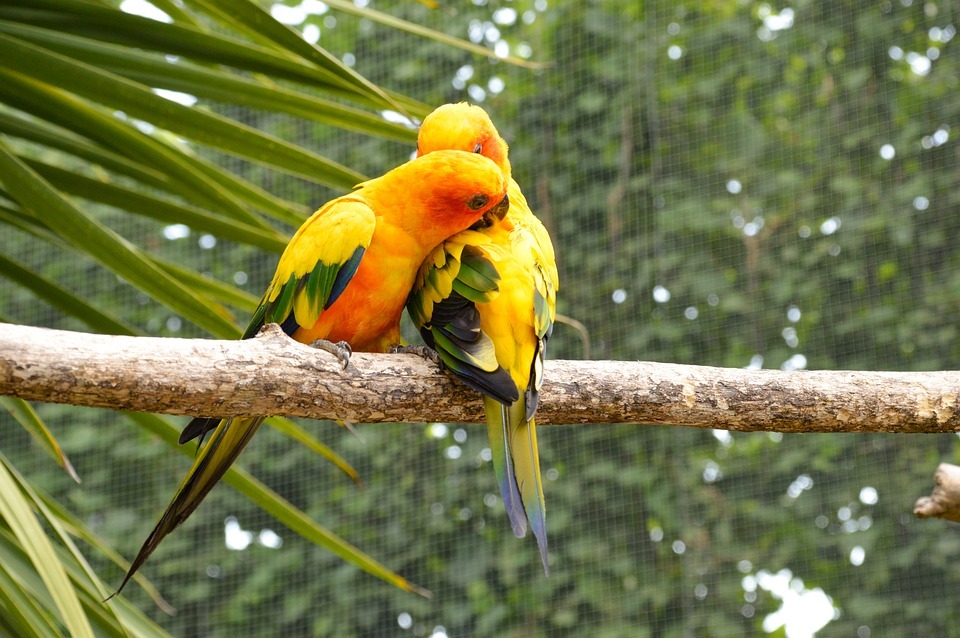The Conure is a bird species that come in small to medium size, often alluring people with its inquisitive and energetic dispositions. Conures are very lovable birds—they come in bright, vivid colors and showcase sociable traits that every pet owner will surely appreciate. According to Northeast Avian Rescue (NEAR) outreach director, Robert Lewis, Conures are extremely intelligent birds, being able to pick up almost anything you teach them. If this bird species excites you, make sure to read further to learn more!
History
Conures are endemic to Central and South America. There are about 100 species of Conures, all possessing slender bodies and long, pointed tails, resembling that of Parakeet’s tails. They are one of the most diverse groups of parrots. Popular species include Jenday Conure, Green-cheeked Conure, Blue-crowned Conure, and Sun Conure.
Characteristics of a Conure
Average size: Around 8 inches
Average life span: More than 30 years with proper care
Conures have slender build and long, pointed tail. Their size varies according to species. These birds come in eye-catching colors, including red, blue, green, yellow, and orange. Their bright colorings are often compared to the plumage of Macaw. Another distinctive characteristic is that Conures lack feathers around their eye areas, which are referred to as eye rings.
Their feathers are as colorful as their personality. They are the life of the party—highly social birds that are bold and vocal. Conures are active, outgoing, and they appreciate lots of cuddles. Like babies, they snuggle and have fun playing with their families, and they love dancing back and forth, mimicking your movements, or perching on your shoulder!
Conures make an excellent family pet because they have patience with children. While some pet birds only want to be petted on the neck and head, Conures generally don’t mind being touched all over the body. Showered with the right amount of love, socialization, training, and affection, Conures will easily make a great companion.
Aside from their lively attitude and patience, they are extremely smart birds that can learn tricks and utter a few words and phrases. However, their vocabularies are not as wide as other parrot species. Still, you can train them to utter various words and mimic your movements.
Caring for a Conure
Conures are extremely loud birds, but the noise level varies according to species. A Conure’s signature call would be a high-pitched screech, which owners usually mistake as a call to answer to. Since they are loud and active birds, they would need plenty of toys to keep themselves pre-occupied, especially when you can’t spare time to play with them. Conures pick their feathers especially when bored, so make sure they always have something to chew and play with.
A single conure would need a spacious cage, particularly something that measures 36 in long, 24 in wide, and 24 in high. A Conure would regularly bathe in water, so ensure to provide clean water in a shallow water dish. Alternatively, you could also provide your Conure a loving bath via spray bath. To do this, you just have to fill a spray bottle with clean, chlorine-free water.
In a family setting, children should be taught how to properly interact with the Conure. Proper interaction habits include proper handling and not forcing interaction. A Conure appreciates it when people surround it. Sometimes, it would even climb under its owner’s shirt and poke its head out of the collar.
When it comes to their diet, a Conure would appreciate a balanced diet, which includes specialized pellets, fresh vegetables, fruits, and fortified seeds. To maintain health, your bird will need a wide variety of fresh vegetables and fruits. An easy way to incorporate these in their diet is the chop concept, which is characterized by mixing a variety of food sources.
Exercise is important for your pet Conure. In the wild, Conures fly many miles in search of food, mate, and nesting site. It can be hard to mimic their habits in the wild, but you can allot 2 hours a day to supervise your pet during playtime and exercise. A great way to keep your bird active is to provide a play gym on the top of your pet’s enclosure.

